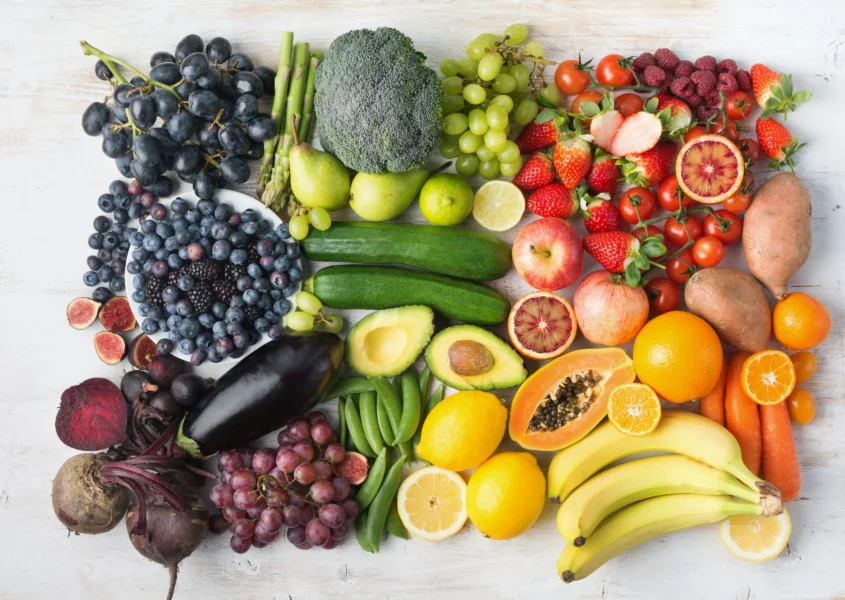
Sugar provides sweetness to many of our favorite foods and drinks. It also happens to be one of the most polarizing nutrition topics. Many people enjoy sweet tasting foods and drinks, however most of us consume more added sugar than what is recommended. But the amount of added sugar that Americans consume has been on the decline in recent decades. According to our 2019 Food & Health Survey, limiting sugar intake was the most common change that people reported making to their diet during the previous decade. More recently, in our 2021 Food & Health Survey, 72% said that they are trying to limit or avoid sugar entirely.
With so many people focused on reducing the amount of sugar they consume, it got us thinking; can one really avoid consuming sugar, and would such a diet be good for health?
Added Sugars vs. Natural Sugars
There are two types of sugars that we consume — added sugars and natural sugars. The types of sugars that are found in whole foods and beverages such as fruit and plain milk, are considered natural sugars. Common natural sugars include fructose, glucose, lactose and sucrose. When sugars are used in making packaged foods and beverages, they are considered added sugars. Two examples of added sugars are high fructose corn syrup and sucrose when it is added in the form of refined sugar.
The way our bodies use natural sugars is not different from how we use added sugar; however, the types and amounts of nutrients in the foods that contain these sugars often differ. The Dietary Guidelines for Americans (DGA) recommend consuming less than 10% of our calories from added sugar; in some cases the DGA recommend even less. There is not a recommendation in the U.S. for how much natural sugar to consume.
Food Sources of Natural Sugars
Fruits, vegetables and milk naturally contain sugar. These foods are sources of important nutrients like calcium, dietary fiber and potassium. Many Americans don’t get enough of these nutrients.
One reason is that very few Americans — about 1 in 10, consume the recommended amounts of fruits and vegetables each day. Although dietary guidance has always encouraged us to eat more fruits and vegetables, our consumption has not increased over the decades. A consequence of low fruit and vegetable intake is low fiber intake. More than 90% of women and 97% of men do not meet the recommended daily intake for dietary fiber. In fact, Americans eat little more than half of the amount of fiber that is recommended to consume each day.
Lactose is the type of sugar found naturally in milk. Milk is used to make dairy products which can be important sources of protein and calcium. Most people eat enough protein, but the same cannot be said of calcium. Calcium is a vital mineral that supports bone health yet nearly 30% of adult men and 60% of adult women do not get the recommended amount of calcium each day. Some dairy products such as yogurt and kefir are also fermented sources of gut-healthy probiotics.
Food Sources of Added Sugars
Many foods and beverages contain added sugars. Sugars are added to foods for a variety of reasons — not just to provide sweetness. The most common sources of added sugars in the American diet are sugar-sweetened beverages, desserts and sweet snacks. Added sugars are also consumed from foods that are considered to be more healthful, like sandwiches and higher-fat milks and yogurts.
Can a Diet Without Sugar be Healthy?
Sugars — natural or added, should not be feared, nor do they need to be avoided for a diet to be considered healthy. Many foods and beverages that are recommended in healthy eating patterns will contain natural sugars. Healthy eating patterns can also include small amounts of added sugars. Keeping added sugar intake low makes it easier to get all the nutrients we need while not overdoing it on calories. However, eliminating or avoiding foods because they contain natural or added sugars does not automatically make a diet healthier. In fact, eliminating foods that contribute to good health like fruits, vegetables and dairy products will make getting enough key nutrients like calcium, fiber and potassium more difficult than it needs to be.



